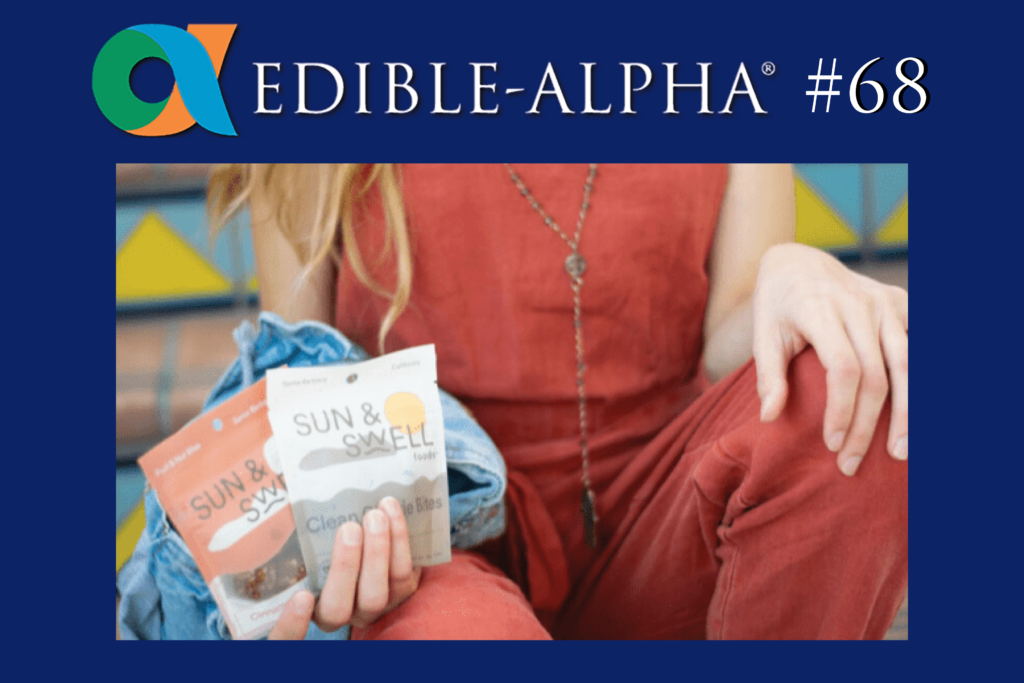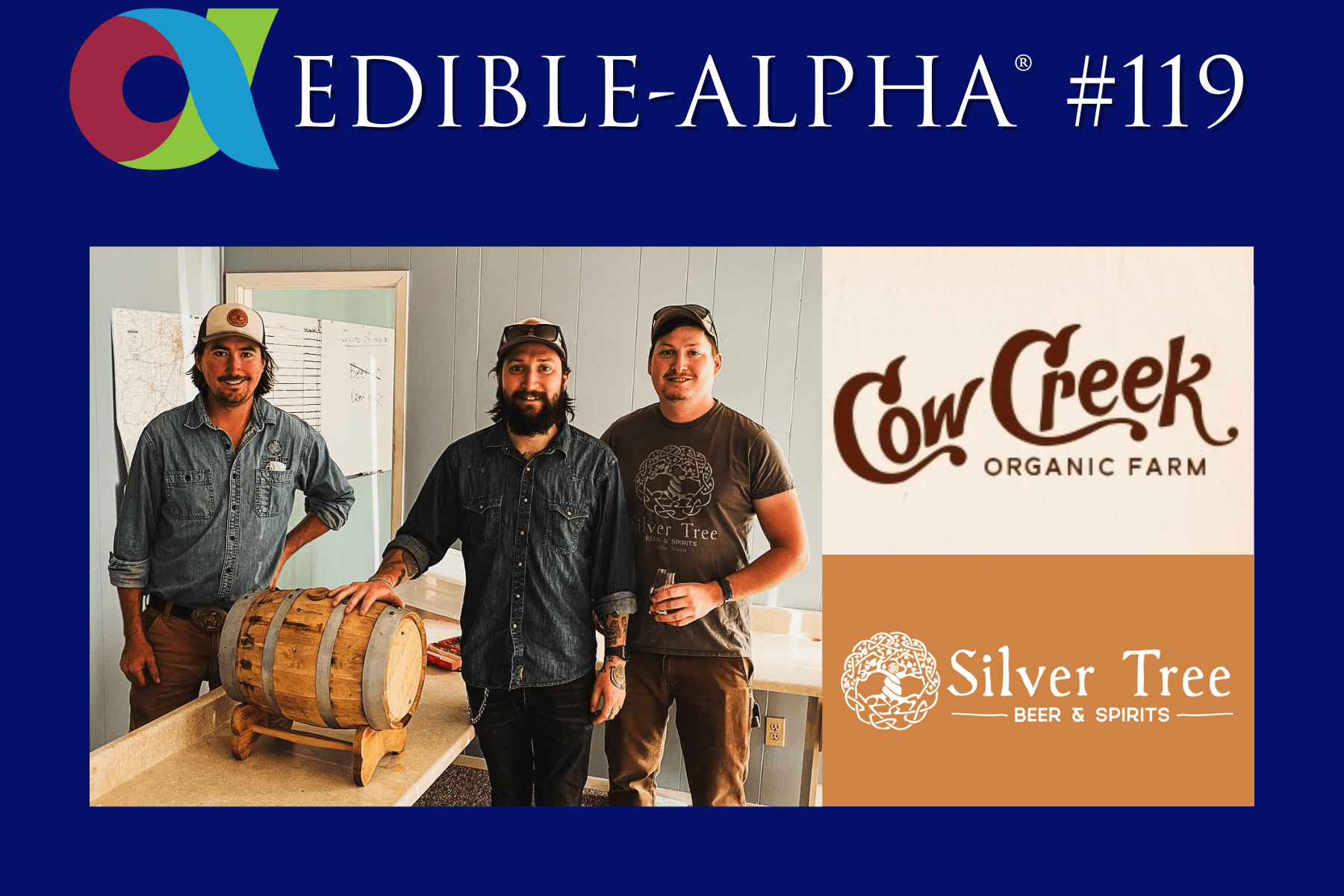Subscribe: Apple Podcasts | Spotify | Amazon Music | iHeartRadio | RSS | More
In Edible-Alpha® podcast #68, Tera talks with Kate Flynn, cofounder and CEO of Sun & Swell Foods, a Certified B Corporation based in Santa Barbara, California that offers organic whole food grab-and-go snacks and pantry staples. They discuss the challenges and benefits of being a mission-based brand, self-manufacturing and shifting strategies in response to the COVID-19 pandemic.
Kate and her husband, Bryan, started Sun & Swell in 2017 to fill an unmet need for simple, nutritious grab-and-go snacks made with organic real-food ingredients. Just two years earlier, Kate had overhauled her diet, started eating clean and began feeling better than ever because of it. Frustrated by the lack of suitable snack foods on the market, she and Bryan took to creating their own and sharing them with friends, eventually landing wholesale accounts. Though Kate was initially dead set against continuing to self-manufacture, they struggled to find a fitting co-packer for their precise specs and small volume, so they continued handcrafting their products in rented commercial kitchen spaces.
Though Kate felt great about providing consumers with healthy snacks, she was never quite comfortable with Sun & Swell’s contribution to the single-use plastics problem. A few years into the business, she learned that compostable packaging technology was available but little used, so the brand took a leap and transitioned to the eco-friendlier solution.
They discovered that some of the challenges presented by compostable packaging made it hard to move product through traditional food distribution channels, but rather than abandon it altogether, they opted to limit sales to select channels of distribution, such as e-commerce and corporate offices. Even though this choice has complicated operations, Kate firmly believes that compostable packaging’s ecological advantages make it worth the hassle—and she acknowledges that self-manufacturing has enabled Sun & Swell, which now has its own facility, to go this route.
Self-manufacturing has also proved fortuitous as the coronavirus pandemic has played out. When half of Sun & Swell’s wholesale business froze in March, the company was able to pivot more easily. Along with ramping up their existing e-commerce business, they revamped their product portfolio to deliver all of their snacks in pantry-size bags. They also begin selling their ingredients in bulk as a new product line of ‘pantry staples’. Thrilled with the success of the bulk business and the fact that it allows them to carry out their mission in a bigger way, Sun & Swell is now adding ingredients beyond those used in their snacks, sourcing directly from family farms.
Although Kate wasn’t keen on continuing to self-manufacture in the beginning, she is grateful for the opportunities it affords Sun & Swell, especially in surviving the pandemic and setting themselves up to thrive in the future. Because as she and Tera discussed, nobody knows what the world will look like once the virus threat lessens or how this experience will change consumer shopping patterns long-term.

